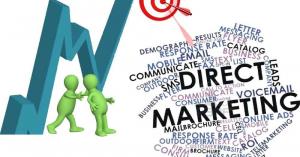Marketing in the Oil and Gas Industry: Does Your Business Employ These Three Effective Marketing Strategies?
Marketing your technical and professional services can be a little bit frustrating if you’re unaware of the needs of and challenges facing the oil and gas industry.
This article will expose you to some strategies to market your professional services, especially the fact that deals are made through handshake and relationship.
Before we move into strategies, let’s first have a closer look at why marketing in the sector needs different approaches.
Intense Competition
It is not surprising that the oil and gas industry is one of competitive industries in the world. People understand that the stake is high, so more people want to invest in the sector.
Consider the proposed East African Crude Oil Pipeline (EACOP) project, for example. How many people are planning to capitalize on the opportunities in the project? I guess a hundred companies. I believe that the Procurement Department at EACOP receives hundreds of emails from suppliers each month.
More importantly, buyers in the oil and gas industry are more demanding: they want you to commit to long-term relationship with them. The quality of products is not enough to guarantee you repeated contracts now but ongoing relationships after sales. This will take your business far. So, companies, like yours, are looking for better ways to connect with clients and industry’s influencers. The reason is that these buyers don’t know who you are; you are invisible to them if you don’t have a relationship with them.
Increase in Similar Products and Services
There is lack of differentiation among competing suppliers and professional service providers. Many companies have no unique competitive advantage that would give clients a reason to shift from their existing suppliers and buy from your company. I call these _*commodity products and services*_. They _differentiate_ themselves by meaningless descriptions.
The descriptions are something like: “We are a leading supplier of spare parts in Tanzania”; “We offer quality services in timely manner and at international standards.” But buyers do not care about all of that. What they care about is how you can solve their problems, and increase efficiency and productivity. Each company must have something that separate them from the competition.
Buyers in the industry have a desire to form a tighter bond with few suppliers. If your company doesn’t have uniqueness, it means that you are telling the same story that buyers have already heard from your competitors. You need to tell them a different story. If you do, you’re giving them a reason to switch from their existing suppliers.
Multiple Decision Makers
No single person is responsible for the purchasing decision in the industry. Even CEOs first consult the Board of Directors to confirm if the company has been overcharged or not. The decisions are made by multiple people who have different power and influences. Even if you are looking to supply Maintenance Repair Operation (MRO) supplies such as pumps, fittings or fuel. Many would evaluate your Request for Proposal before selecting the qualified supplier. To make matters worse, the sales cycle is too long. It ranges from one day to months. Sometimes, it could take a year. The bigger the order, the more people involved in making the decision and the longer the sales cycle.
In reality, those who can increase their visibility by deploying many marketing tools in their marketing efforts stand a greater chance at reaping substantial reward. Those who can define their company’s unique strength that separate them from their competitor would stand out from the competition.
Setting Your Mindset
Now that you understand why marketing your technical and professional services in the oil and gas industry needs different approaches, let’s discuss the main objective of marketing in the industry.
If asked, most technical and professional service providers will say the objective is selling their products and services.
No. The purpose is not to make immediate pitch or direct sale. It is to build a relationship of trust. End of story.
Your marketing efforts should aim at putting you in front of prospective clients, building a database of qualified leads, and converting those leads into appointments, so that you can have a deeper understanding of their needs and for clients to understand that you can meet their needs.
This helps to build relationships with the buyers. And guess who will be considered when they evaluate Requests for Proposal from competing suppliers? The answer is YOU. That’s because they prefer to work with people they like and trust. This solid relationship leads to a lot of multiple opportunities.
By shifting your mindset and focusing on the relationship-based culture, you are presenting your firm in a positive light.
Rather than interrupt your client by showing up in their office or use high-pressure selling tactics, marketing and branding programs help you communicate your brand’s story in a way that buyers in the industry care and are passionate about. If clients are passionate about your offer, they not only give you repeated contracts, they become raving fans who trust you and want to work with you. That makes you a BIG fish in a small pond.
Turn Your Marketing Efforts into Good Results
Strategy #1: Understand Your Marketing Program Objectives
Whether you use direct email, public relation, speech, presentation, networking or ads placement as your marketing tool, articulate what you want to accomplish with your marketing and branding campaign. These two are pointless if you are unaware of your objectives or unsure of your expectations. Are your marketing programs aimed at enhancing the reputation of your company or developing leads and inquiries?
If, for example, your marketing program is designed to generate inquiries, then your marketing efforts would produce result. Otherwise, it would be a wasteful opportunity.
Strategy #2: Deploy Different Marketing Tools
When you are marketing your technical or professional services, keep in mind that no single marketing program can produce a great result.
Let’s say you have been using a direct email as your marketing tool to approach the buyers. If you measure the result, how many orders are coming in through that channel? Even if you say it works just fine for you, unless you combine a mixture of marketing tools, you won’t see a flow of opportunities.
No marketing tool works alone. Direct marketing cannot work on its own. Cold call or telemarketing cannot work alone, as well as proposals, networking, presentation and public relations. But its mixture will produce great results.
Strategy #3: Your Marketing Program Should Focus on Specific Services
Marketing programs work well if they are concentrated on the specific services that buyers really want. For example, if your firm offers maintenance services as well as manpower to the industry. You can decide to focus on single services along in your marketing programs. This produces a good result as opposed to trying to be general.
Final Words
Remember that no marketing or branding program will sell your services. The best it can do is increase your visibility and educate clients on your company strength and capability. This helps generate leads and turn those leads into appointments. Perhaps that might result into receiving a Request for Proposal.


